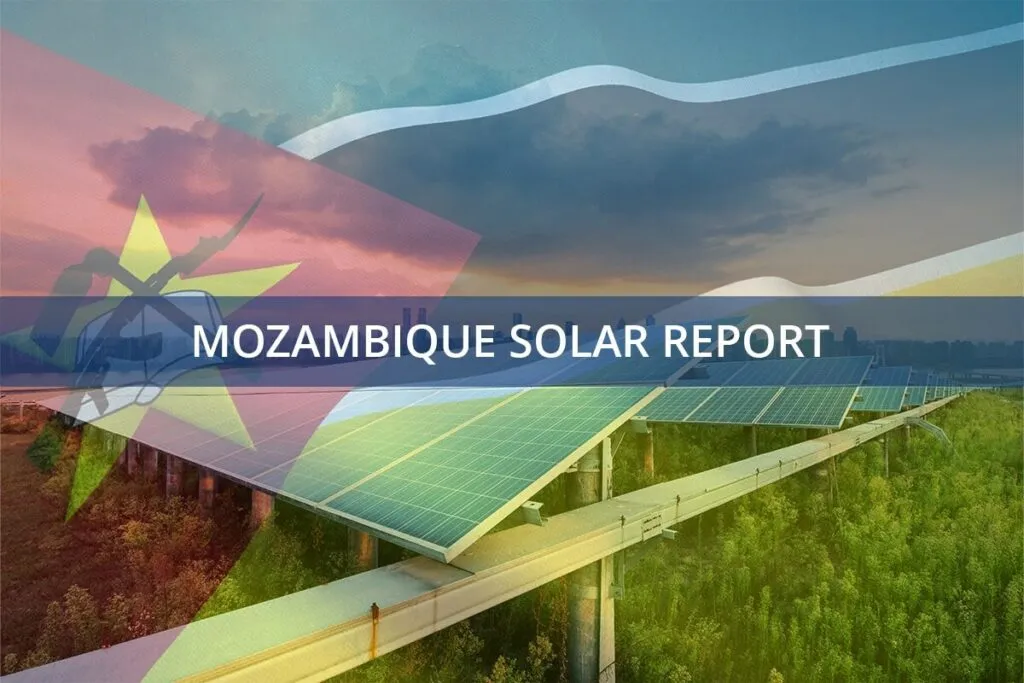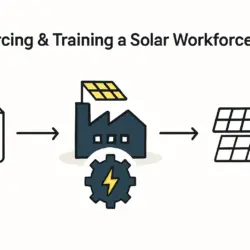Unlocking Mozambique solar potential: A New Dawn for Southern Africa
Mozambique is poised to become a major player in solar power, with ambitious plans to install 2.4 GW of new capacity by 2025. This strategic push includes a significant 1.5 GW solar project in the Cabo Delgado province. The country aims to leverage its abundant solar resources to reduce its heavy reliance on hydropower and bolster national energy security, marking a pivotal step in its path to a clean energy future.
Diversifying Beyond Hydropower with Mozambique solar potential
While Mozambique is already a leader in clean energy, its current profile is heavily skewed. The nation generates a remarkable 98% of its electricity from renewable sources, but hydropower constitutes the vast majority of this mix. This dependence on a single source, while clean, leaves the country vulnerable to climate change-induced droughts that can impact dam levels and electricity generation.
According to the International Energy Agency (IEA), diversifying this energy mix by tapping into other vast resources is crucial. By developing its significant solar potential, Mozambique can create a more resilient and stable energy grid, ensuring a consistent power supply for its growing economy and population.
Powering Universal Access and Economic Growth with Mozambique solar potential
This solar expansion is a cornerstone of Mozambique’s 2023 Energy Transition Strategy, which aims for universal energy access by 2030. The initiative aligns with a broader trend of accelerating Africa solar growth, where solar is seen as a critical tool for electrifying the continent. For millions in rural Mozambican communities, off-grid solutions like mini-grids and standalone solar systems represent the most viable path to affordable and reliable electricity.
Beyond homes, this energy transformation is set to drive industrial development. The increase in available power supports the expansion of industries, creating jobs and stimulating economic activity. This mirrors a continent-wide understanding, as discussed in recent renewable energy Africa conferences, that sustainable energy is fundamental to economic progress. Innovative projects, such as the upcoming 100 MW Mozambique floating solar plant at the Chicamba dam, showcase the country’s commitment to deploying cutting-edge solar technology.
Global Relevance for European Markets: The Mozambique solar potential
Mozambique’s solar boom holds significance far beyond its borders, resonating with energy strategies in countries like Germany. As Europe transitions away from fossil fuels, the stability and growth of global renewable energy markets are paramount. A diversified global energy supply, strengthened by new players like Mozambique, contributes to more stable international energy prices and supply chains.
For German engineering firms, technology providers, and investors, this burgeoning market presents substantial opportunities. The successful execution of gigawatt-scale projects requires expertise across the entire value chain. This includes mastering the solar panel manufacturing process and understanding the fundamental basics of solar panel manufacturing. Furthermore, success hinges on securing reliable supply chains for essential solar panel raw materials and utilizing state-of-the-art solar panel manufacturing machines. A comprehensive analysis of the solar panel manufacturing plant cost breakdown is vital for any international entity looking to participate in or support this growth.
By embracing solar power on a massive scale, Mozambique is not only securing its own energy future but also contributing to the global clean energy transition.
To learn more about the intricacies of the solar industry and how you can be a part of it, consider enrolling in our free e-course on solar panel manufacturing.



